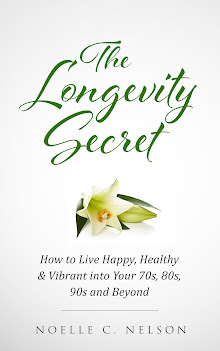NBC’s upcoming television show “Forever Young” (premiering June 21), is
another example of the new trend that celebrates our older population. It comes
on the heels of
the HBO documentary, “If You’re Not in the
Obit…Eat Breakfast.”
Forever
Young is hosted by Steve Harvey and highlights the talents of those in their
60s and beyond. “If we’re fortunate enough, we’ll live long lives. Programs
like Forever Young provide living proof that our later years can be some of our
best years. How do we get there? A lot depends on our attitude.
I've highlighted over 100 thriving individuals in their 80s, 90s and beyond on the “Meet The Amazings” Facebook page in the
past year alone. Some are famous, most are not.
Every person featured on Meet The Amazings has an appreciation for life. They
have a zest for living; they still have a lot they want to do. They are happy, optimistic and
grateful for each day. I expect that to be true of those on Forever Young too. Now compare their outlook with people who are sitting around
waiting for life’s clock to expire. It’s a stark contrast.
An
appreciative life often means a longer life. In a 2011 study, researchers at
University College, London, gauged the happiness levels of people ages 52 to 79
by monitoring their feelings several times over a day. Then, five years later,
the researchers examined how many of those people had died. The result? Older
people who are happy have a 35 percent lower risk of dying over a
five-year period than unhappy people. Even after the researchers controlled for
medical conditions including cancer and diabetes, and health risks such as smoking,
being happy was still linked with living longer.
Of
course, good health and financial security play a role. But study
after study shows that those who see life through an appreciative lens,
regardless of health or financial issues, still live a longer, happier life
than those who don’t.
Everyone, no matter their age, adopt the appreciation approach. You can start to enjoy the mental and physical health benefits right away. Don’t wait until you hit 70. Find something you love, something that will make you happy and fulfilled and then go for it. And always take time to appreciate life’s ordinary pleasures, from the taste of your morning brew to the sweetness of a child’s smile.






